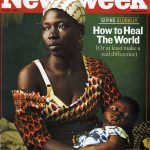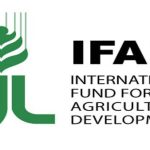Fao Conference on Food Safety: Challenges for Climate Change and Bioenergy.
AFRICA FORUM: GIVING VOICE TO ORGANIZATIONS OF CONTEMPORARIES, AGRICULTURAL PRODUCERS AND TRADITIONAL KNOWLEDGE.
Rome 4/6/08.
In the FAO Conference, the Africa Forum focused on the vital responses to the vital subsistence of African agriculture in relation to the challenge of climate change and bioenergy. The Forum, introduced by Alexander Muller as Assistant to FAO’s Director-General and co-ordinated by IFAD’s Jean Philippe Audinet, saw the participation of important African peasant organizations, international NGOs and government representatives from around the world and set a time for reflection On the challenges of agriculture in Africa and on all continents. The speakers stressed that African agriculture and traditional knowledge can provide a fundamental contribution to food production by encouraging and assisting small agricultural producers and safeguarding the heritage of cultural identity and diversity in local wisdom .
Pietro Laureano, coordinator of IPOGEA invited by FAO as a Non-Governmental Organization, presented the proposal put forward by the Tuscany Region, UNCCD and UNESCO World Heritage Creation Center in Florence (www.tkwb.org). In his speech he said:
“Climate change is not a new phenomenon in Africa and in the world. Far from the dawn of agriculture farmers have faced the unpredictability and the environment and climate variability. Precisely these conditions have forged local knowledge capable of responding to adversities by appropriate techniques of water capture and distribution, soil protection, recycling and optimum energy uses. These techniques form an extraordinary reservoir of biological diversity and sustainable knowledge.
However, it is the first time in the history of the planet that climate change occurs because of human intervention and is accompanied by two factors that make it difficult to answer.
The first factor is the time. The speed of triggered processes prevents the gradual natural and cultural adaptation that allowed progressive adaptation to new conditions.
The second factor is the state of degradation of physical and social conditions. Soils are exhausted by industrial agriculture and massive urbanization. Cultures are emptied of emigration, poverty, and loss of identity.
Industrial agriculture has produced large areas for monoculture and supported by irrigation and artificial fertilization, herbicides and pesticides. It has so destroyed that mosaic landscape made of terraces, dry walls, cultivated varieties, tree rows, drainage that protected soil protection and water retention. Urbanization has emptied the mountainous areas by eliminating human gaps in erosion and determined large cemented surfaces on the coasts and plains preventing water absorption into the bogies. Climate extremes thus have a devastating effect, triggering physical and cultural desertification.
Without a clarity on these issues, the FAO conference is likely to have the opposite effect of the will, namely the relaunch of agricultural productivity and industrialization in agriculture which are the cause and not the solution to the problem: it is not necessary to produce for the poor but Allow the poor to produce.
Every day the death of an old man, the abandonment of a village by a farmer, the emigration into a girl’s city leads to the disappearance of a library of local knowledge necessary to face the new challenges. That is why the proposal of a Traditional Knowledge Bank inventory and freely share the appropriate techniques and their innovative use. It is necessary to give dignity and role to traditional knowledge that is not reminiscences of the past or of folklore, but constitutes the system of local science. Listening to the voice of places, ensuring the preservation of landscapes is not a cultural or aesthetic exercise, means engaging in sustainable agriculture indispensable to ensuring life and food security to all living things. “








